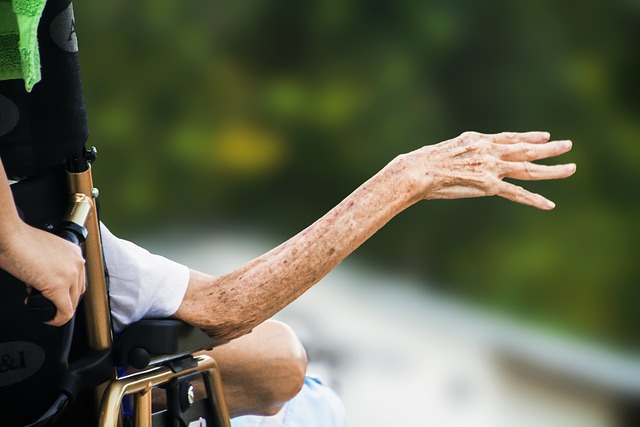Elderly Companion Services are essential for enhancing the nutritional and social aspects of seniors' lives, especially those who live alone. These services tailor meal plans to dietary needs and preferences, often with guidance from registered dietitians or nutritionists to ensure they cater to health conditions like diabetes or heart disease. The preparation and enjoyment of meals together not only provide the nutritional benefits but also enrich social interactions, supporting mental and emotional well-being. These services are inclusive, considering cultural preferences and dietary restrictions, and extend support into broader aspects of daily living, including grocery shopping, menu planning, and promoting sustainable practices. With the use of technology, Elderly Companion Services offer virtual cooking classes and educational sessions on healthy eating to keep seniors connected and informed. The services adopt a holistic approach by integrating care that addresses both nutritional and companionship needs, thereby improving quality of life for older adults through attentive care. They also play a significant role in mitigating loneliness and isolation by fostering social connections, emotional support, and a sense of belonging within the community.
—
Adequate nutrition and social interaction are cornerstones of healthy aging. This article explores the synergistic benefits of elderly companion services, particularly in the context of meal preparation and companionship. We delve into how these services not only ensure nutritious meals but also foster meaningful social engagement. By examining the role they play in enhancing daily life, we highlight strategies that promote both physical well-being and emotional support. Furthermore, we explore how meal sharing initiatives within companion care programs can strengthen community bonds, enriching the lives of seniors in a multifaceted manner.
—
- The Role of Elderly Companion Services in Enhancing Meal Preparation
- Strategies for Nutritious and Social Meal Times with Elderly Companion Services
- Building Community Ties Through Meal Sharing and Elderly Companion Care Programs
The Role of Elderly Companion Services in Enhancing Meal Preparation

Strategies for Nutritious and Social Meal Times with Elderly Companion Services

Incorporating meal preparation into elderly companion services not only ensures nutritional well-being but also fosters valuable social interaction. These services are tailored to address the specific dietary needs and preferences of seniors, often who may be living alone. By working with registered dietitians or nutritionists, these companions can create meal plans that cater to health conditions such as diabetes or heart disease, ensuring each dish is both balanced and appetizing. The act of cooking and eating together enriches the experience beyond mere sustenance; it provides a shared activity that can stimulate conversation and laughter, brightening the daily routine of the elderly. This social engagement is crucial for mental health and emotional well-being, often being as beneficial as the nutritional aspect of the meals themselves. Elderly companion services bridge the gap between good nutrition and companionship, offering a holistic approach to senior care that enhances quality of life.
Furthermore, elderly companion services can adapt to dietary restrictions or cultural preferences, making them an inclusive option for diverse populations. These services often extend beyond the kitchen, engaging seniors in activities related to meal preparation like grocery shopping, menu planning, and even composting or recycling food waste, thereby promoting a sustainable lifestyle that aligns with environmental consciousness. The companionship aspect ensures that these tasks are not only practical but also enjoyable, as the elderly are never alone in their endeavors. With the rise of technology, some services even offer virtual cooking classes or nutritional education sessions, keeping seniors connected to their communities and abreast of healthy eating practices. This dual focus on nutrition and companionship is a testament to the comprehensive support provided by elderly companion services.
Building Community Ties Through Meal Sharing and Elderly Companion Care Programs

Engaging in meal preparation and sharing within community settings can significantly enhance social bonds and foster a sense of belonging among participants, particularly for seniors who may be experiencing loneliness or isolation. Elderly Companion Services often facilitate these interactions by providing a structured environment where individuals can come together over nutritious and satisfying meals. These programs not only address the nutritional needs of elderly community members but also offer a platform for social interaction, storytelling, and cultural exchange. By participating in collective meal preparations, seniors have the opportunity to share their culinary skills or learn new ones, which can become a point of connection and pride within the group. This communal approach to dining not only enriches the nutritional experience but also rekindles the joy of shared meals, reinforcing community ties and fostering a supportive network that is invaluable for the well-being of older adults.
Elderly Companion Services extend beyond mere meal provision; they offer companionship and emotional support that are equally as vital for the health and happiness of seniors. These programs are designed to provide consistent, empathetic company that can help alleviate feelings of loneliness and depression, which are common among the elderly. The presence of compassionate caregivers during meal times not only ensures that nutritional needs are met but also guarantees a social interaction that many seniors might otherwise miss out on. This holistic approach to elderly care emphasizes the importance of social engagement in combination with proper nutrition, creating a comprehensive model for supporting the health and vitality of older adults within the community.
In conclusion, the interplay between meal preparation and elderly companion services offers a multifaceted approach to supporting the nutritional and social well-being of seniors. By integrating these services into daily routines, individuals can not only enjoy more balanced and nutritious meals but also foster meaningful connections within their communities. The strategies outlined in this article emphasize the importance of companionship in meal times, providing a framework for programs that aim to enhance the quality of life for the elderly. Elderly companion services emerge as a vital resource, bridging gaps in care and promoting inclusivity and engagement. Through these efforts, we can ensure that our aging population is well-nourished, socially active, and supported in their golden years.
